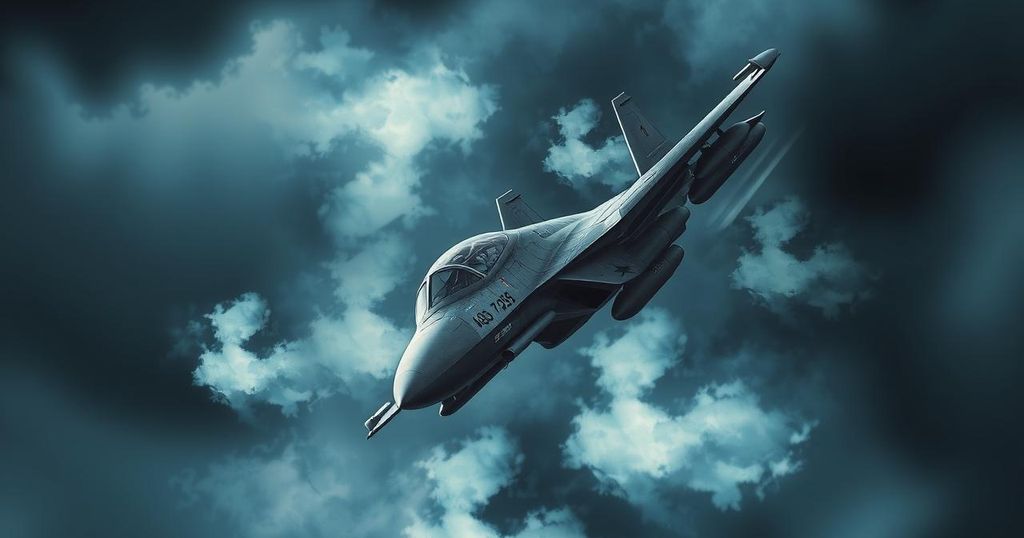US Strikes on Houthis: A Warning to Iran Amidst Growing Yemen Crisis

The U.S. strikes on Houthi positions in Yemen, ordered by President Trump, aim to deter Iranian influence and maritime attacks. However, experts warn these actions may worsen civilian conditions, fostering further resilience among the Houthis. The strikes coincide with intensified diplomatic pressures on Iran regarding its nuclear program. Overall, a multifaceted approach is necessary to address the complex humanitarian implications of the conflict.
The recent U.S. strikes on the Houthi militia in Yemen serve as a significant warning to Iran, although analysts caution that these military actions may exacerbate civilian hardships, which the Houthis could exploit. President Donald Trump directed the attacks on Houthi-controlled territories to deter their assaults on vessels in the Red Sea and Gulf of Aden, asserting a commitment to utilize “overwhelming lethal force” until Houthi aggression ceases. The strikes are part of a broader strategy of maximum pressure on Iran and its affiliates in the region, aiming also to encourage diplomatic engagement regarding Iran’s nuclear ambitions.
Baraa Shiban, a Yemen analyst, remarked that the strikes aim to convey a strong message to Iran, positioning it as a warning of possible future actions against them. He noted, “It looks, from the intensity of the strikes, like this operation will continue,” suggesting that such military measures might diminish Houthi capabilities akin to past operations against Hezbollah in Lebanon. In the aftermath of the attacks, which resulted in at least 31 casualties, the Houthis declared their intent to resume attacks on shipping following Israel’s blockade on Gaza, although international shipping has reportedly remained unaffected since.
Echoing Mr. Shiban’s sentiments, another Yemen official expressed approval of Trump’s assertive approach, emphasizing that previous leniency had only empowered the Houthis. This anonymous delegate indicated, “Only strength can bring stability and not concessions.” However, some experts, such as Osamah Al Rawhani from the Atlantic Council, emphasized that stark military measures negatively influence civilians, as Houthi-controlled areas encompass over 60% of Yemen’s population. Al Rawhani suggested that these strikes, while aiming to diminish Houthi military capabilities, must be part of a broader strategy addressing the smuggling of arms from Iran and the underlying political issues propelling Houthi resilience.
In response to these U.S. actions, the Houthi leadership condemned what they termed U.S. “aggression,” promising retaliation. Additionally, Hezbollah denounced the U.S. military operations. This recent military activity follows Trump designating the Houthis as a foreign terrorist organization, reversing earlier policies by the Biden administration. Notably, the strikes coincided with Trump’s outreach to Iran’s Ayatollah Khamenei concerning nuclear negotiations, which was rebuffed by Khamenei as an insincere gesture to manipulate public perception and intensify diplomatic pressure.
In summary, the U.S. strikes against the Houthis signal a firm stance towards Iran while aiming to curb Houthi aggression in critical shipping regions. However, various experts caution that such military actions may inadvertently worsen the humanitarian crisis in Yemen. As civilian suffering escalates and the Houthis reclaim resilience, there remains an urgent need for a comprehensive strategy that incorporates political dialogue alongside military action to alleviate the ongoing humanitarian disaster. The situation continues to evolve, warranting close scrutiny and adaptive strategies from global actors.
Original Source: www.thenationalnews.com







